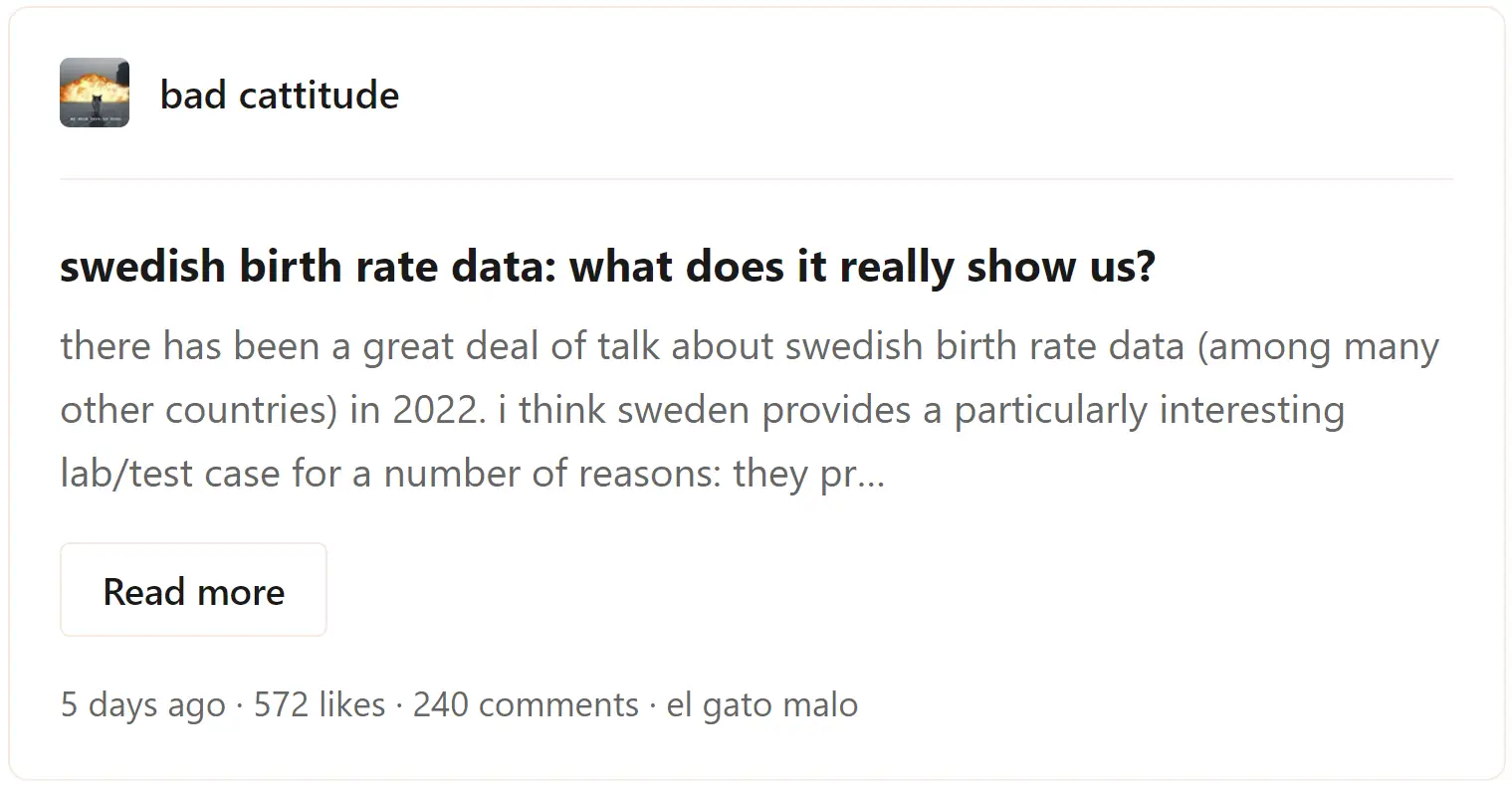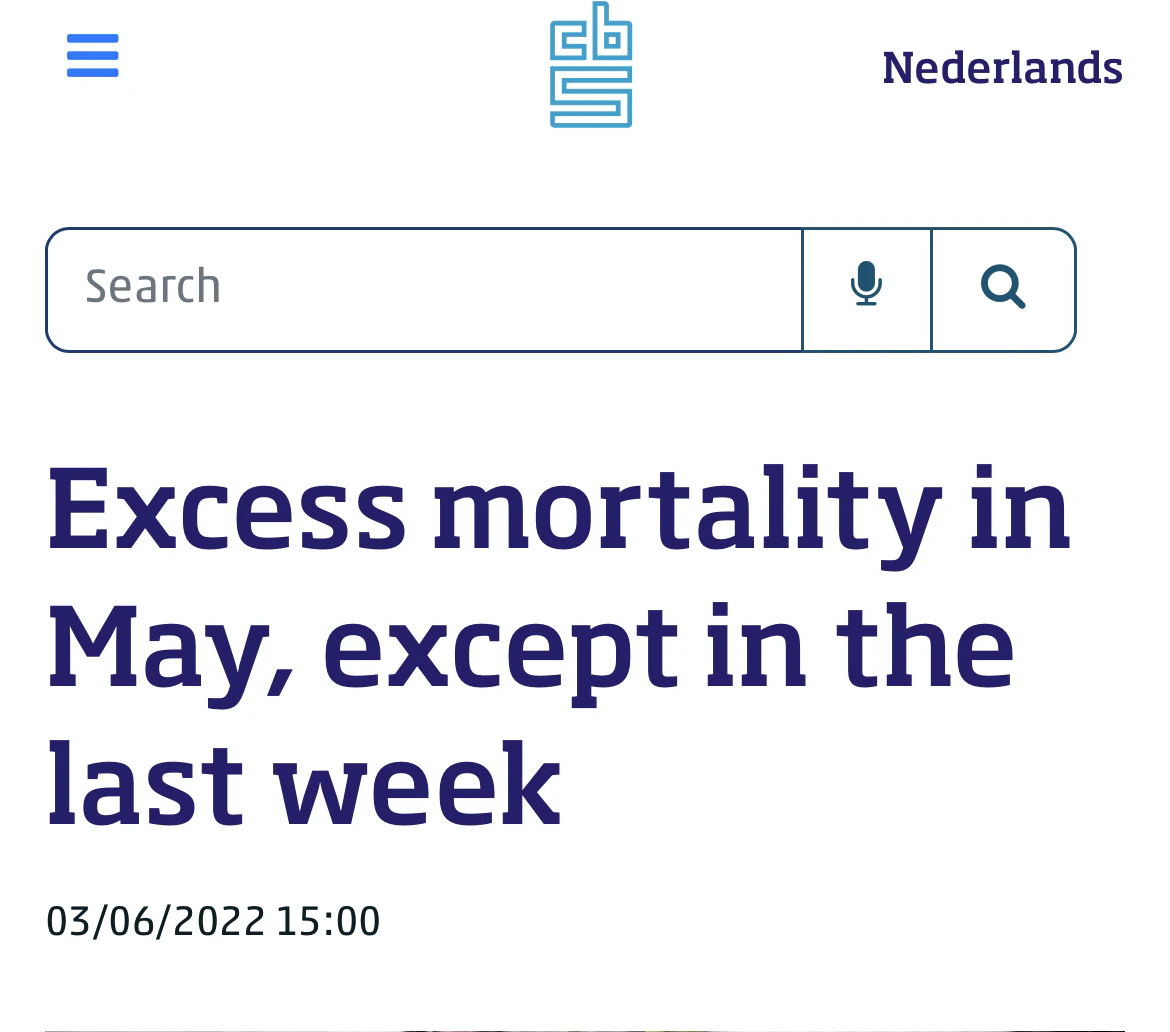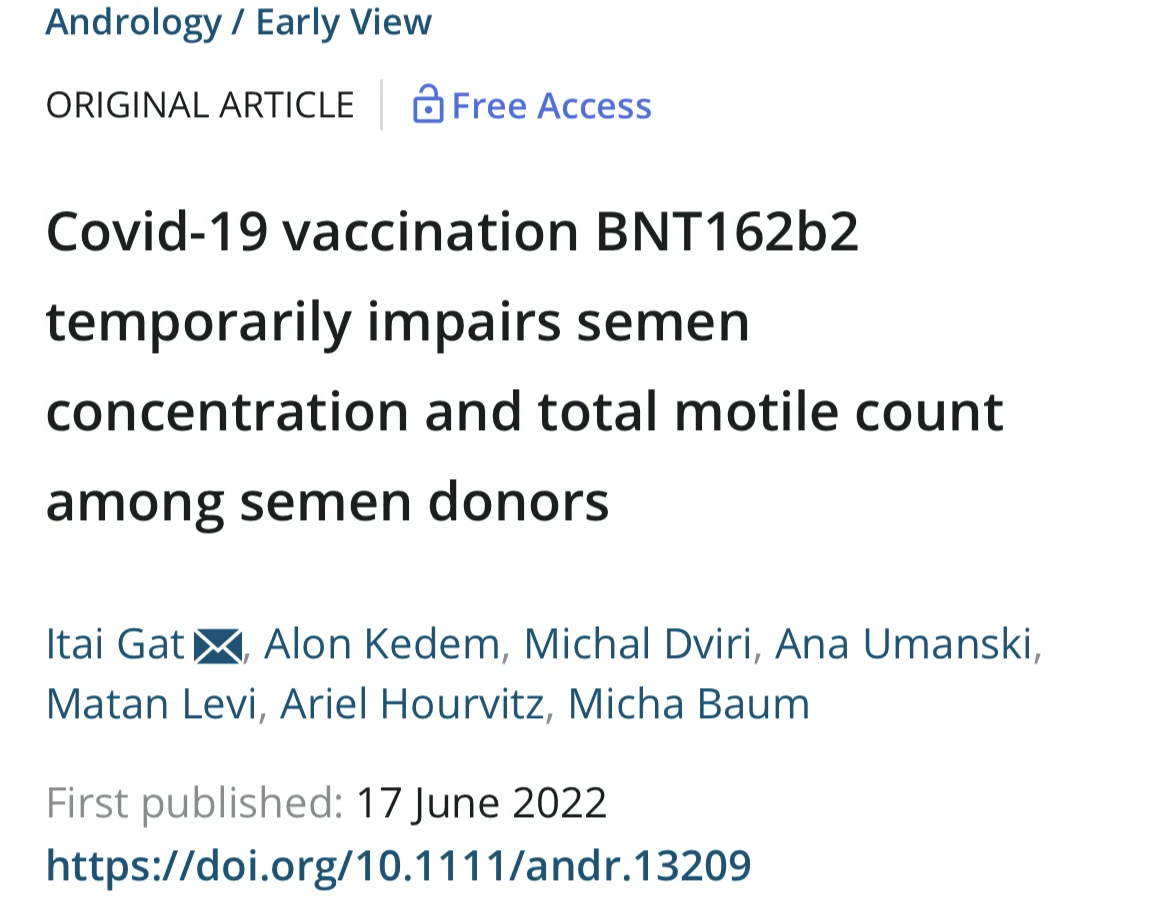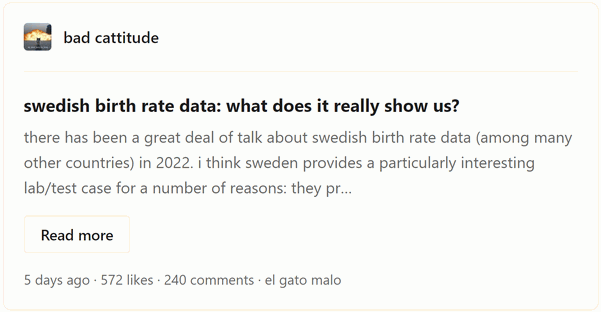Not yet, but real concern is warranted
In the last few weeks, vaccine skeptics have reported data from multiple countries showing a significant drop in birth rates starting in early 2022 – approximately nine months after mass Covid vaccinations began in people of reproductive age in those countries.
It is worth noting that these are the smart skeptics, not the 5G conspiracy theorists. (It is also worth noting the 5G types have largely disappeared from the conversation. The mRNA vaccine data on side effects and efficacy are now so bad that reasonable people have scary enough concerns to crowd out the crazies.)
Here’s the most recent major data dive, from the analyst who calls himself the bad cat. He examines data on Swedish births from the first quarter of 2021 and concludes:
i think this makes the case that sweden is just experiencing normal variability look very weak and the the case for a vaccine driven effect look quite strong.
that is NOT what i was hoping to find. if this is what it looks like, this is very bad news.

https://boriquagato.substack.com/p/swedish-birth-rate-data-what-does?utm_source=substack&utm_campaign=post_embed&utm_medium=web
(72 HOUR PAYWALL BELOW)
—
Declining births alongside rising all-cause deaths in the mRNA-vaccinated countries? That’s gotta be a conspiracy theory. Can’t be true, can it? Can’t possibly be something that a couple of Substackers and no one else would report? Major news outlets would be all over this, they would have to be.
Or not.
(The Dutch, admirably direct:)

The rise in all-cause non-Covid deaths has now lasted more than six months in many mRNA-vaccinated countries and been entirely ignored by the elite media. (American data are messier, and the United States has terrible a opioid epidemic that makes the numbers even harder to parse.)
Rising deaths are scary. But a sharp decline in birth rates would be truly apocalyptic, and give rise to the worst fears of vaccine conspiracy theorists.
So is the drop in fertility in 2022 real?
The short answer appears to be yes. Several countries have experienced a drop in births in this year. Like the rise in deaths, the decline in births is relatively small on an absolute basis – on the order of 10 percent in Sweden in the first three months of 2022, for example – but large on a relative basis.
In other words, because fertility generally does not change much year-to-year, a 10 percent decline is very large by historical standards.
And this decline comes on the heels of the Israeli study showing declining sperm counts in men who received the Pfizer vaccines.

Still, I don’t think it’s quite time to panic.
Why not?
The biggest issue is that countries around the world, especially wealthier ones, have had a slow, long-term decline in fertility that long predates Covid. Births in Scotland fell from 67,000 in 1991 to under 50,000 in 2019, for example. Whatever the reasons for this depressing trend, the mRNA vaccines cannot have caused it.
At the same time, the data from 2020 and 2021 are very messy. Monthly birth registrations plunged in March 2020 because the pandemic and lockdowns closed government offices; births themselves seem to have risen in late 2021, maybe because of optimism in early 2021 that the mRNA shots would end the pandemic. (Remember those happily deluded days?)
Thus we have to go back to 2019 for clean data, and if the long term decline in fertility is continuing, the 2022 numbers should be down from 2019. The shots provably cause short- and perhaps medium-term menstrual changes in many women, too. It is possible that those changes are the primary driver of this winter’s drop, in which case they should reverse quickly. (Behavioral changes – that some couples spent less time at home in the months after being vaccinated and thus had less sex – might be another explanation, though less likely.)
Also, though the decline in births is coming almost exactly nine months after the mass vaccination campaigns really expanded to younger people in spring 2021 in Europe, the word almost is doing a lot of work there. The campaigns were sequenced by age, and most people in their 20s and 30s vaccinated later than older people.
So the decline in births may have started slightly less than nine months after many people under 40 were given the shots. Knowing for sure will require close analysis of both vaccinations and births on an almost weekly basis, which no one has yet done.
Finally, good data out of the United Kingdom, Norway, and elsewhere does not show an increase in miscarriages or stillbirths in vaccinated women, suggesting that any vaccine impairment in fertility would be related only to conception, not to pregnancy.
So no, it’s not yet time to panic. The worst all-cause death spikes – the months when deaths were 20 percent or more above normal – lasted only a couple of months in the mRNA-jabbed countries. Though deaths are still high, they are no longer at those levels.
Let’s hope that births similarly return to normal or very-near-normal levels in the next few months.
What we can know for sure is that this trend bears very close watching.
And that the media and public health authorities will do exactly the opposite.


